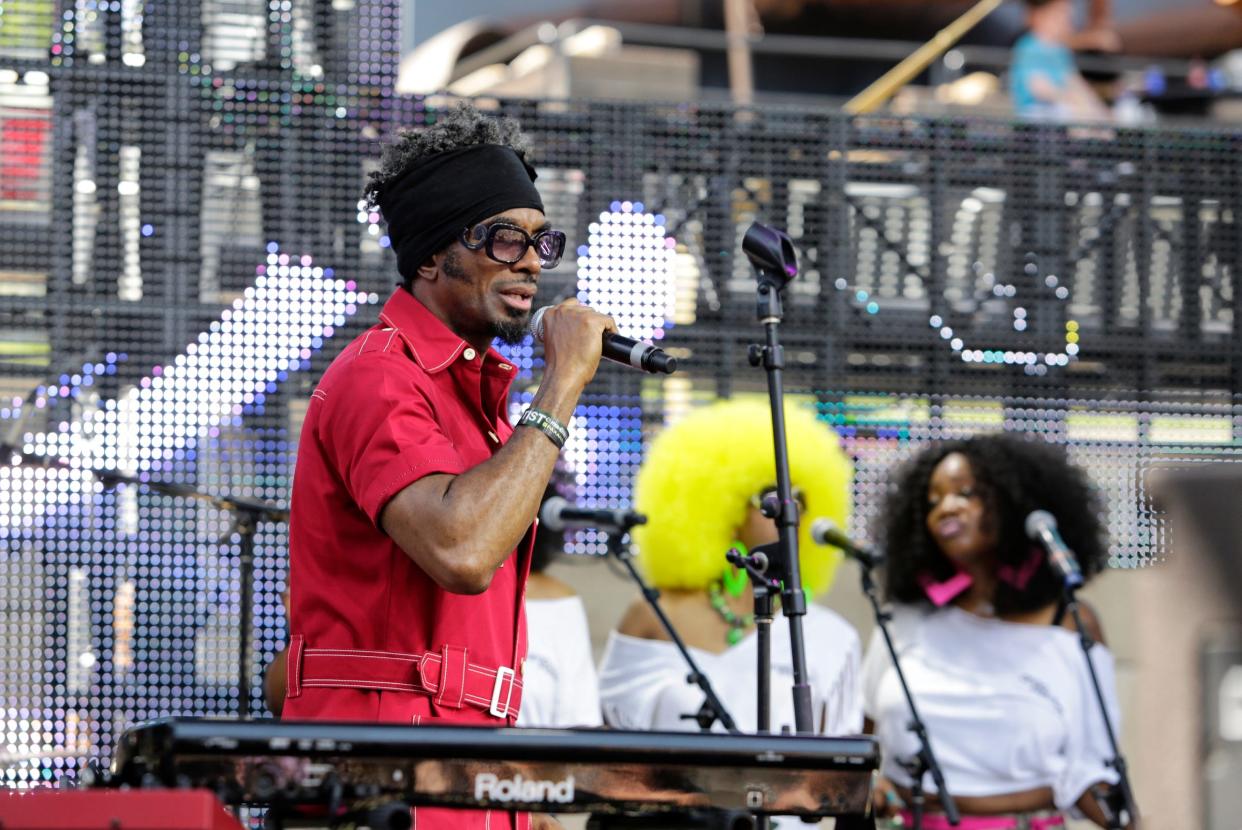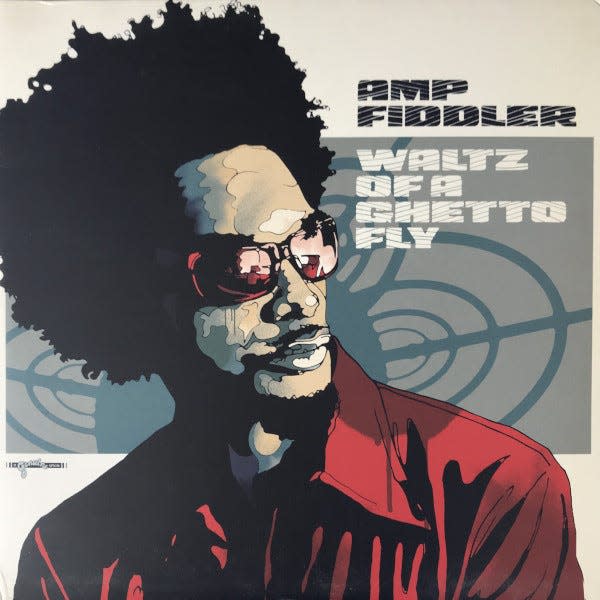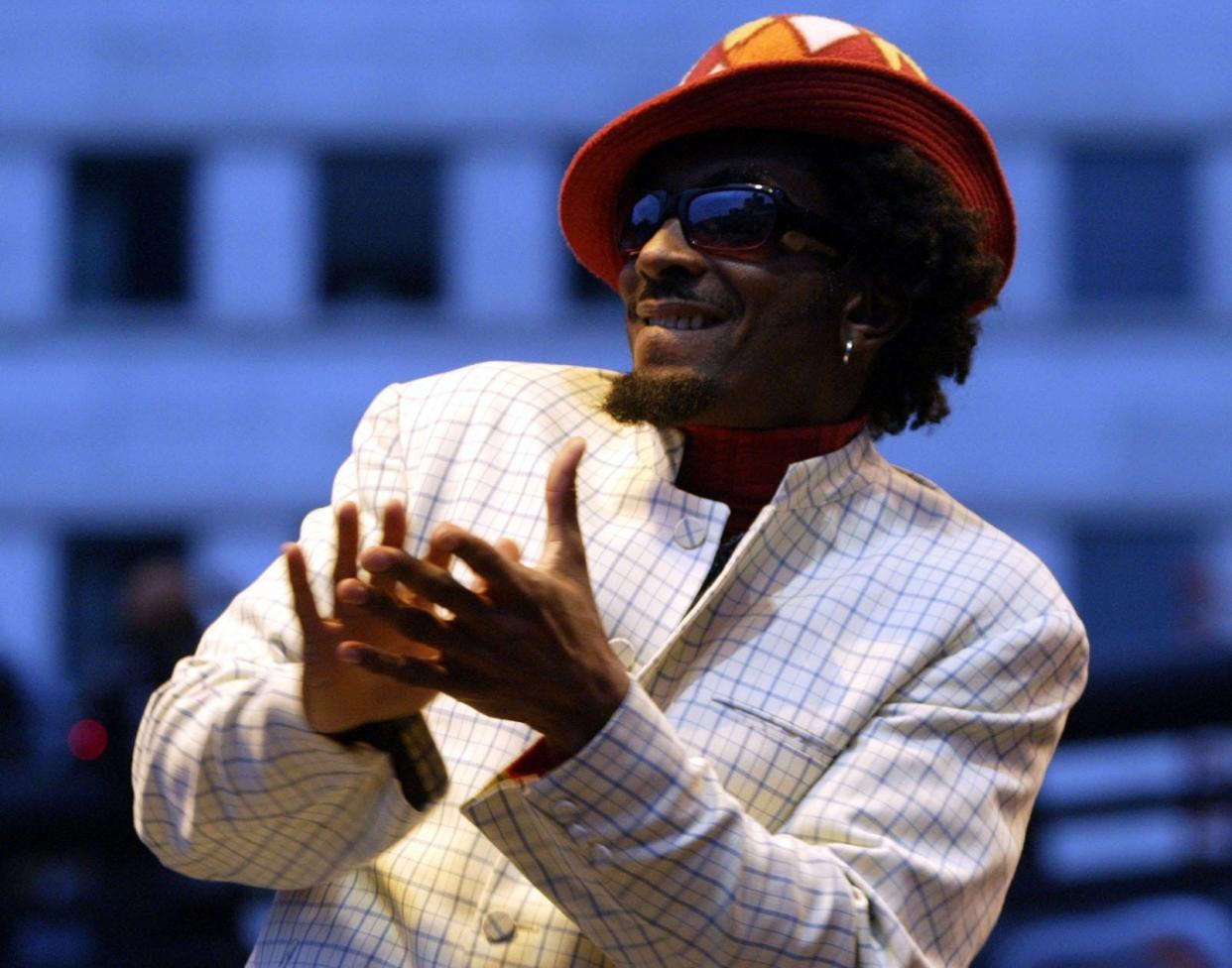Amp Fiddler, revered Detroit musician, had a career that spanned genres and decades
On a Detroit music scene teeming with diverse characters and sounds, few figures were more universally beloved than Amp Fiddler, a man as graceful one-on-one as he was at a keyboard.
Fiddler, 65, died Sunday night at Henry Ford Hospital following a multiyear cancer battle, prompting an outpouring of tributes and remembrances from artists in Michigan and beyond, where he left a genre-spanning impact.
“He was a great musician and even better person. Just so peaceful with everybody,” said musician Kern Brantley. “It’s a tragic loss for the music community worldwide and especially Detroit.”

Jazz singer Joan Belgrave, widow of trumpeter Marcus Belgrave, with whom Fiddler collaborated, said of Fiddler: "As a musician, he was phenomenal but humble. As a man, he was kind, caring and giving."
Fiddler was stylish, spiritual and artistically generous, a man who radiated good vibes and whose influence was stealthy but vast: While he may not have been a chart-topping name, he was a giant of Detroit music, lending his keyboard chops and creative heat to funk, soul, jazz, rock and techno for nearly five decades.
Having made a name as part of George Clinton’s Parliament-Funkadelic squad in the ‘80s — a decade of training in the touring and business side of music — he went on to boast a sprawling list of credits, playing on records by Prince, Seal, Maxwell, Raphael Saadiq, Warren Zevon, Was (Not Was) and Detroit techno luminaries such as Kenny Dixon, Juan Atkins and Carl Craig.
With his bass-player brother Bubz, he landed a deal with Elektra Records in the late ‘80s, releasing a new jack swing-style album under the name Mr. Fiddler.
Several years later, Fiddler took Slum Village under his wing, welcoming the little-known hip-hop group into his home studio off of Seven Mile Road, situated in the Conant Gardens area where he grew up.
With their shared love of funk and progressive sensibilities, Fiddler and Slum forged a tight bond, one that was particularly meaningful for the outfit’s young producer, J. Dilla — who went on to become one of the most revered names in hip-hop.
More: Fun, irreverent holiday cabaret show is a charming win for Detroit Public Theatre
Fiddler’s own body of work, which ramped up with the acclaimed “Waltz of a Ghetto Fly” and “Afro Strut” in the mid-2000s, sealed his reputation as a creative force unto his own. His solo music put a sophisticated, contemporary spin on a vintage, timeless soul sound.

"It feels like a logical progression for me, how my career has moved," he told the Detroit Free Press in 2004 as his solo career gained attention in Europe and stateside. "I've grown from one stage to another — floors keep opening up for the next floor. That's a beautiful way for things to keep growing, as opposed to just going from the first floor straight to the eighth floor. It's been nice."
At a piano or keyboard, Fiddler’s playing was understated and versatile, traits that helped him seamlessly fit into a variety of musical scenarios. For years, wherever music was happening in Detroit, Fiddler seemed to be in the thick of it — at venues as wide-ranging as the Movement electronic music festival and Aretha’s Jazz Café.
“He had the ear and a style, and he didn’t overplay. He was subtle — less was more.” said musician, producer and label owner R.J. Rice, who enlisted Fiddler for R.J.'s Latest Arrival and was later involved with Slum Village.
“Amp was very creative and innovative with his sounds,” said Brantley, who regularly worked with Fiddler in the studio and onstage. “And he was very community oriented, very pro-Detroit. He always represented the city when traveling.”
Those tendencies were instinctual for Fiddler, whose music was steeped in a homegrown soulfulness.
"I try not to overthink things. I don't want to overwrite," he said in 2004. "One thing I've recognized is that all those songs I loved from the Motown era, they were all really simple. They weren't trying to sound deep. They were just sensible songs that made sense. But they were also relevant for their time — social and political issues you'd hear on your radio. That made a difference in the way people thought, and hopefully that's what we can bring back."
For Fiddler, said Belgrave, the priority "was the music and the message, not the fame and the fortune."
Born Joseph Fiddler, the native of Detroit's east side grew up in a musical household — his mother a classical music aficionado, his father a Jamaica native who loved the tropical sounds. Though he didn’t take piano seriously until high school, he turned out to be a natural, and his subsequent mentorship under jazz great Harold McKinney helped shape his future.
In his early career, often working with his brother, Fiddler did the rounds with an assortment of jazz and R&B outfits in the late ‘70s, including Enchantment and R.J.’s Latest Arrival. And then came the big break: A homemade tape he’d created for a girlfriend made its way to George Clinton, and Fiddler was soon part of the P-Funk family.
The fashionable Fiddler exuded an effortless cool, but it was coupled with a selflessness and welcoming spirit that made him one of the best-loved figures on Detroit’s music scene.
“He could have jumped out the GQ pages from Paris,” said studio operator Joel Martin. “He was so put together. But he never, ever put on airs.”
Said Belgrave: "He didn't care about what style was in — it was his style. He easily could have been a fashion icon, walking the New York runway with his own design."

Even amid his long cancer fight, Fiddler continued to work, including studio projects during the past year with the Detroit trio Dames Brown.
In recent years, Fiddler had endured a series of close family deaths, including that of his 18-year-old son, rising musician Dorian, in 2009. Friends said the scope of that loss was defining for Fiddler, building a resilience that carried into his own medical fight the past several years — cancer that spread through his body and eventually to his brain.
A longtime vegan, Fiddler initially sought naturalistic measures before eventually agreeing to chemotherapy treatment, friends said.
“He was very sick, but a lot of us didn’t even realize how serious it was,” said friend Oneita Jackson. “He was proud. He was humble and modest. He just wanted to do so much for other people.”
In the days before his death, he received a stream of longtime music friends in his Henry Ford Hospital room.
“There was still fight in his eyes,” said techno artist Derrick May. “He went with dignity.”
Friends said Fiddler was proud of his musical legacy, but in recent months preferred to spend his conversations discussing family, friends and love.
“The king has left the building,” said May. “And there will never be another one like him.”
Contact Detroit Free Press music writer Brian McCollum: 313-223-4450 or bmccollum@freepress.com.
This article originally appeared on Detroit Free Press: Detroiter Amp Fiddler had a music career that spanned genres, decades
